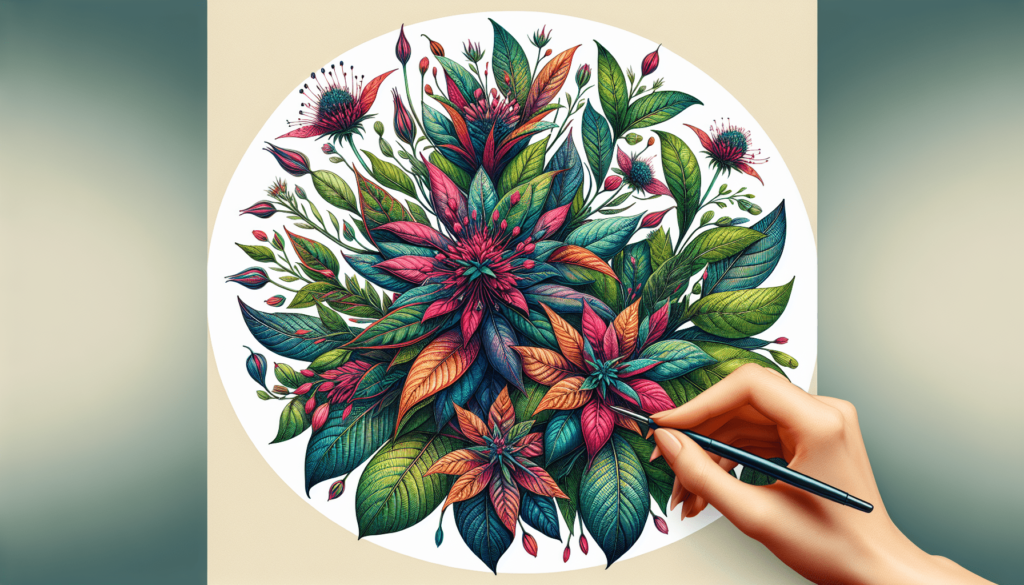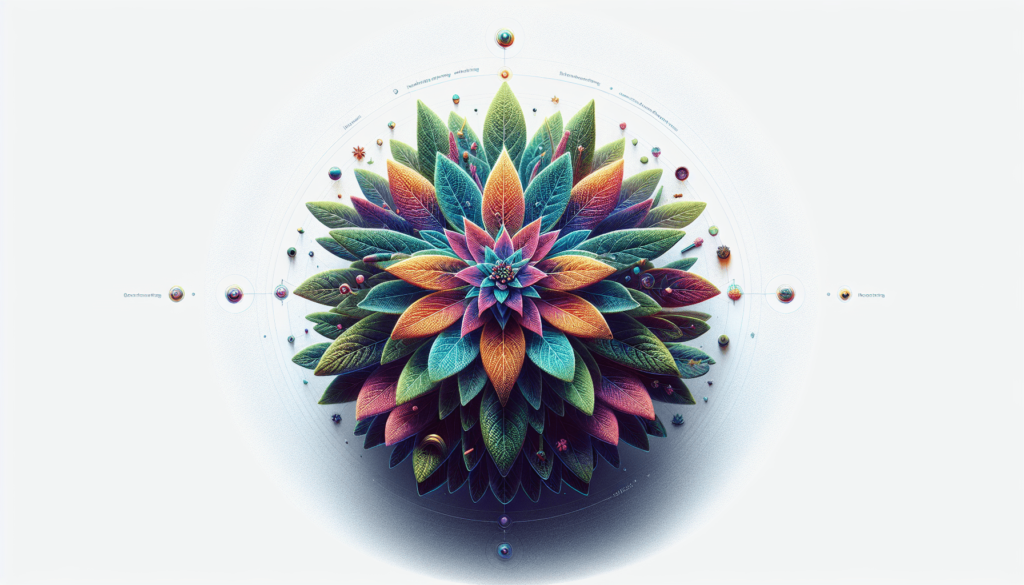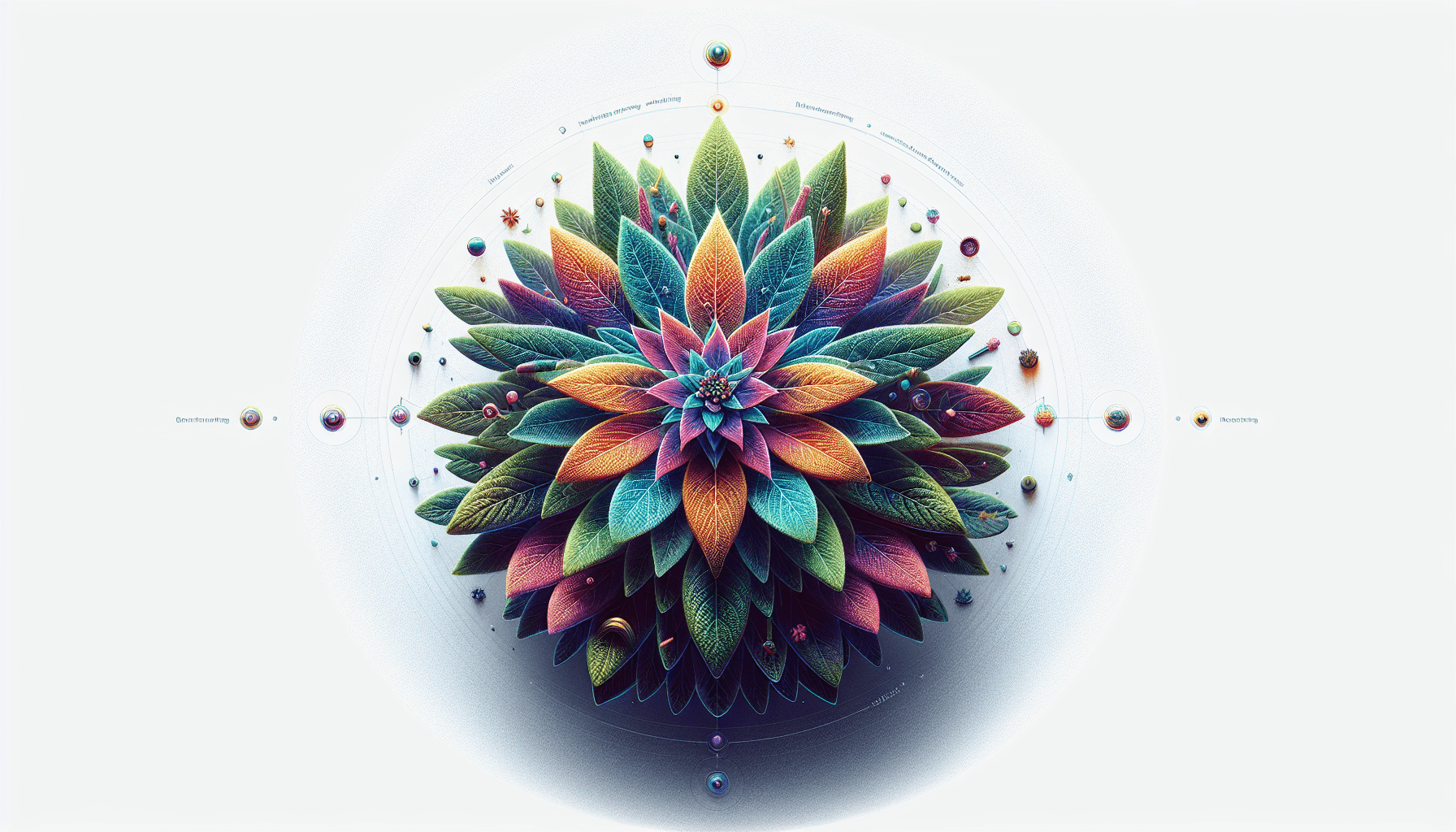Have you ever wondered how nature’s remedies can hold such incredible healing properties? In today’s fast-paced and technologically advanced society, it is easy to overlook the power of plant medicine. However, through centuries of traditional practices and recent scientific research, it has become increasingly clear that the natural world holds an abundant source of healing potential. From soothing herbal teas to potent essential oils, plant medicine has the ability to address a wide range of physical and mental ailments, providing a gentle and holistic approach to modern healing. Join us as we explore the fascinating world of plant medicine and uncover its remarkable benefits in promoting wellness and balance in our lives.

The History and Tradition of Plant Medicine
Ancient Origins of Plant Medicine
Plant medicine has a rich and ancient history, dating back thousands of years. Civilizations across the world have recognized the healing properties of plants and incorporated them into their traditional medical practices. From ancient Ayurvedic and Chinese medicine to Indigenous healing practices, plant medicine has been a cornerstone of holistic healing for centuries.
Traditional Uses of Plant Medicine
Throughout history, plants have been used to treat a wide range of ailments and promote overall well-being. Traditional healers and medicine people have relied on their deep knowledge of plants to alleviate symptoms and restore balance in the body. From indigenous cultures using herbs and botanicals to shamans conducting sacred plant rituals, plant medicine has played a vital role in traditional healing practices.
Evolution of Plant Medicine
Over time, the understanding and use of plant medicine have evolved. As civilizations advanced, scientific exploration allowed for a deeper understanding of the chemical composition and pharmacological properties of plants. This led to the development of more sophisticated herbal remedies and greater knowledge of how specific plants interact with the body. Today, plant medicine continues to evolve as new research uncovers further insights into its potential benefits.
Scientific Understanding of Plant Medicine
Chemical Composition of Plants
Plants contain an array of chemical compounds that contribute to their healing properties. These compounds, known as phytochemicals, include alkaloids, flavonoids, terpenes, and many others. Each plant species possesses a unique combination of these compounds, which gives them distinct therapeutic properties. Researchers have been studying these chemical compositions to gain a better understanding of how they interact with the human body.
Pharmacological Properties and Effects
The pharmacological properties of plants can be both specific and broad. Some plants have analgesic properties that can alleviate pain, while others have anti-inflammatory effects that reduce swelling and promote healing. Many plants also possess antimicrobial properties, making them effective in fighting infections. Additionally, certain plants can affect mood and promote relaxation, making them valuable in the treatment of mental health conditions.
Research and Clinical Studies
In recent years, there has been a surge of scientific research and clinical studies aimed at exploring the potential benefits of plant medicine. Researchers are investigating the efficacy and safety of various plant-based treatments, as well as their potential interactions with conventional medications. These studies provide valuable insights into the specific mechanisms of action of plant compounds and pave the way for evidence-based integration of plant medicine into modern healthcare practices.
Types of Plant Medicine
Herbal Medicine
Herbal medicine is one of the most well-known forms of plant medicine. It involves using the leaves, flowers, stems, and roots of plants to create remedies that can be ingested, applied topically, or inhaled. Herbal medicine encompasses a wide range of practices, including traditional Chinese herbal medicine, Ayurvedic medicine, and Western herbalism. It offers a holistic approach to healing by considering the body as a whole and addressing the root causes of illnesses.
Aromatherapy
Aromatherapy harnesses the power of plant extracts, usually in the form of essential oils, to promote physical and emotional well-being. By inhaling or applying essential oils to the skin, individuals can experience the therapeutic effects of these concentrated plant compounds. Aromatherapy is often used to alleviate stress, improve mood, and enhance relaxation. It can be incorporated into massages, diffused in the air, or added to skincare products.
Essential Oils
Essential oils are highly concentrated plant extracts that capture the essence and therapeutic properties of various plants. These oils are typically derived through steam distillation or cold pressing of plant parts such as leaves, flowers, bark, or roots. Each essential oil has its own unique composition and combination of compounds, giving it specific healing properties. Essential oils are versatile and can be used in a variety of ways, making them a popular choice in natural remedies and self-care routines.
Herbal Teas
Herbal teas, also known as tisanes, are beverages made by steeping plant materials such as leaves, flowers, or roots in hot water. Herbal teas offer a gentle and soothing way to benefit from the medicinal properties of plants. Different plants and combinations of herbs can be used to target specific health concerns, such as promoting relaxation, aiding digestion, or supporting the immune system. Herbal teas are enjoyed worldwide for their comforting flavors and therapeutic effects.
Plant Medicine in Mental Health
Effects on Anxiety and Stress
Plant medicine has shown promising effects in reducing anxiety and stress. Certain plants, such as lavender and chamomile, have calming properties that can help promote relaxation and ease tension. Inhaling the aroma of these plants or using them in essential oil form can have an immediate soothing effect on the mind and body. The use of plant medicine in managing anxiety and stress is a natural and gentle approach that can be integrated into daily self-care practices.
Depression and Mood Disorders
Depression and mood disorders can significantly impact an individual’s quality of life. Plant medicine offers a complementary approach to managing these conditions. Some plants, like St. John’s wort, have been studied for their potential antidepressant effects. They may help regulate neurotransmitters in the brain and improve mood. It’s important to consult with a healthcare professional before incorporating plant medicine into the treatment of depression to ensure proper guidance and monitoring.
PTSD and Trauma
Post-traumatic stress disorder (PTSD) and trauma-related conditions can be challenging to manage. Plant medicine, particularly psychedelic substances like ayahuasca or psilocybin mushrooms, has gained attention for its potential in supporting individuals dealing with trauma. These substances, when used in controlled and ceremonial settings under the guidance of experienced practitioners, have shown promise in facilitating healing and offering new perspectives for those struggling with the aftermath of trauma.

Plant Medicine in Physical Health
Pain Management
Plant medicine has been used for centuries to manage pain. Certain plants, such as turmeric, ginger, and willow bark, exhibit anti-inflammatory properties that can help alleviate pain and reduce inflammation. These plants can be used topically or ingested, depending on the desired effects. Nature’s pharmacy offers a wide range of options for pain management, allowing individuals to find plant-based remedies that work best for their unique needs.
Digestive Health
Many plants are known for their beneficial effects on digestive health. Plants like peppermint, ginger, and chamomile can help soothe digestive discomfort, reduce bloating, and alleviate symptoms of indigestion. Traditional herbal remedies have been used for generations to promote healthy digestion and enhance gut health. Incorporating plant medicine into one’s diet and daily routine can provide gentle and effective support for optimal digestive function.
Immune System Support
Supporting the immune system is crucial for overall health and well-being. Certain plants, such as echinacea and elderberry, contain compounds that help boost the immune response, making them valuable allies during times of illness or seasonal transitions. Herbal remedies, herbal teas, and essential oils can be used to support the immune system and strengthen the body’s natural defense mechanisms. Plant medicine offers a holistic approach to maintaining a strong immune system and promoting overall vitality.
Plant Medicine in Integrative Medicine
Combining Plant Medicine with Conventional Treatments
Integrative medicine seeks to combine the best of both conventional and alternative healing modalities. When it comes to plant medicine, integrative approaches involve incorporating natural remedies alongside conventional treatments. This collaboration allows for a more comprehensive and personalized approach to healthcare. By working closely with healthcare providers, individuals can safely explore the benefits of plant medicine while ensuring optimal coordination with conventional treatments.
Holistic Approaches to Healing
Plant medicine aligns perfectly with the holistic philosophy of addressing the root causes of illness and promoting overall well-being. It recognizes that physical, mental, and emotional health are interconnected and strives to nurture all aspects of a person’s being. Holistic healing approaches that incorporate plant medicine focus on empowering individuals to take an active role in their health and embrace natural remedies as part of a well-rounded lifestyle.
Preventative Medicine
Prevention is often emphasized in plant medicine and holistic healing practices. By taking proactive steps to maintain health and prevent illness, individuals can reduce their reliance on reactive treatments. Regularly incorporating plant-based remedies and wellness practices into daily routines can help strengthen the body’s natural defenses and promote optimal well-being. Plant medicine offers a sustainable and accessible approach to preventative medicine, supporting individuals in achieving and maintaining good health.
Plant Medicine and Sustainability
Ethical Harvesting and Cultivation
As the popularity of plant medicine grows, it is essential to consider the ethical harvesting and cultivation of medicinal plants. Sustainable practices prioritize the protection of plant populations and their ecosystems. Cultivation methods that encourage biodiversity and minimize the use of harmful chemicals are crucial for long-term availability and quality of plant medicine. Ethical sourcing ensures that communities and indigenous cultures relying on these plants are respected and economically supported.
Conservation Efforts
Conservation efforts play a vital role in preserving the diverse plant species used in medicine. Many medicinal plants are at risk due to habitat loss, climate change, and over-harvesting. Through initiatives such as seed banks, protected areas, and sustainable harvesting practices, organizations and individuals are working together to conserve and sustain the plants that provide valuable medicine. Conservation not only protects plant biodiversity but also safeguards the cultural heritage tied to plant medicine.
Eco-friendly Packaging
In the pursuit of sustainable plant medicine, attention must also be given to eco-friendly packaging. Packaging materials that are biodegradable, recyclable, or made from renewable resources help minimize waste and reduce the environmental impact of the industry. Sustainable packaging practices are an integral part of embracing the principles of plant medicine and ensuring a holistic approach to healing that extends to the well-being of the planet.
Cultural and Spiritual Significance of Plant Medicine
Sacred Plant Rituals and Ceremonies
Across cultures and traditions, plants have held a sacred place in spiritual rituals and ceremonies. From indigenous cultures using sacred plants like Peyote or Ayahuasca in their ceremonies to the use of herbs for purification and protection, plant medicine is intertwined with spirituality. These rituals and ceremonies create sacred spaces for healing, connecting with higher realms, and deepening the understanding of oneself and the natural world.
Connection to Nature and Spirituality
Plant medicine offers a profound connection to nature and spirituality. Engaging with plants on a deeper level allows individuals to reconnect with the natural world, fostering a sense of awe and reverence for the Earth’s gifts. By recognizing the interconnectedness of all living beings, individuals can tap into the spiritual aspects of plant medicine and embark on a journey of self-discovery and personal transformation.
Shamanic Practices
Shamanic practices have long utilized the power of plant medicine for healing and spiritual exploration. Shamans, or medicine people, act as intermediaries between the spiritual and physical realms, using plant-based remedies to facilitate healing and connect with higher consciousness. Shamanic practices often involve ceremonial plant medicine use, guided by ancient traditions and rituals. These practices provide a unique perspective on the healing potential and spiritual significance of plant medicine.
Plant Medicine for Self-Care and Wellness
Incorporating Plant Medicine into Daily Routines
Plant medicine can be incorporated into daily routines to enhance self-care and overall wellness. Starting the day with a cup of herbal tea, diffusing essential oils throughout the day, or using herbal remedies as needed can bring the therapeutic benefits of plants into everyday life. Creating intentional moments to connect with nature and utilize plant medicine can nourish the body, mind, and spirit, fostering a holistic approach to self-care.
DIY Herbal Remedies and Beauty Products
Making DIY herbal remedies and beauty products can be a fulfilling and empowering way to embrace plant medicine. From crafting herbal tinctures and salves to blending personalized essential oil blends, individuals can customize their remedies to suit their specific needs. DIY projects allow for a deeper connection with plants, a deeper understanding of their therapeutic properties, and the ability to create natural alternatives to commercial products.
Creating Sacred Spaces
Creating sacred spaces at home or in nature provides a nurturing environment to engage with plant medicine. Whether it’s dedicating a corner of a room to meditation and herbal rituals or spending time in a garden surrounded by healing plants, these sacred spaces invite relaxation, connection, and self-reflection. Engaging with plant medicine in dedicated, intentional spaces allows for deeper communion with plants and provides a sanctuary for self-care and personal growth.
Future of Plant Medicine
Advancements in Plant Research
The future of plant medicine looks promising as advancements in plant research continue to unfold. Scientists are delving deeper into the chemical complexity of plants, uncovering novel compounds and their potential applications in medicine. With the advent of technologies like DNA sequencing and metabolomics, researchers are gaining a better understanding of the intricate mechanisms by which plants interact with the human body. This ongoing research promises to unlock new therapeutic possibilities and further validate the efficacy of plant-based treatments.
Integration into Mainstream Healthcare
As scientific evidence accumulates, plant medicine is increasingly gaining recognition within mainstream healthcare. Many healthcare providers are now embracing an integrative approach that combines conventional medicine with complementary practices like plant medicine. Integrative medicine clinics are emerging, providing a comprehensive range of treatments that incorporate the best of both worlds. The integration of plant medicine into mainstream healthcare is an exciting development that holds the potential to transform the way we approach healing and well-being.
Education and Awareness
Education and awareness play a crucial role in the future of plant medicine. As more people recognize the power and potential of plant-based treatments, there is a growing need for comprehensive education and accessible information. Healthcare professionals, researchers, and educators are working to bridge the gap between traditional knowledge and scientific understanding, ensuring that plant medicine is practiced safely and effectively. By fostering greater awareness and understanding, plant medicine can continue to thrive as a valuable healing modality.
In conclusion, the history and tradition of plant medicine are deeply rooted in ancient civilizations and cultural practices across the globe. From traditional uses to scientific advancements, plant medicine continues to evolve and offer a holistic approach to healing and well-being. With its diverse applications in mental and physical health, integrative medicine, sustainability efforts, spiritual significance, and self-care routines, plant medicine holds a promising future in modern healing. As research progresses and awareness grows, the power of plant medicine will undoubtedly play a significant role in shaping the healthcare landscape of tomorrow.

